May 4, 2021
Regardless of how you feel about COVID-19—that it’s a serious threat to global health, and thus should be treated as such; that it was manufactured in a lab so that Bill Gates could implant us all with microchips; or somewhere in between—it’s undoubtedly had a powerful impact on everything from global trade to the environment to the awkward way humans now interact with one another (i.e. is a handshake OK? What about a hug? Uh-oh, people ahead, should we cross the street to avoid them?).
And, whether you view the COVID lockdowns as a necessary evil to combat the virus or an unnecessary inconvenience, the truth is that the dramatic shift in how we live our lives has repercussions that reach far beyond the virus itself.
In other words, even if you’re not directly witnessing the negative impact on yourself, your family, or your friends, you still likely have a sense that what’s happening to society as we know it is troubling.
And frankly, folks, it’s time to take a serious look at the unseen impacts of the COVID lockdown on our psychological, emotional, and physical health.
After 13+ months of collecting data, there’s now compelling research in this area that will hopefully give policymakers reason to adjust restrictions accordingly, and start to open up society as quickly as possible.
Now, chances are you’re thinking something like “Ben, it’s April 2021. Schools are reopening. People are going back to work. Vaccines are getting dished out like toothbrushes at a dentist’s office. The COVID hype is over.”
And in that case, I sincerely hope you’re right.
But, if somehow we’re all still stuck at home for another year, this article will equip you with a plethora of tools (the exact ones my family and I have used) to at least stay happy, healthy, and fit, no matter what the coming months bring.
Psychological Impacts of the COVID Lockdowns
Before I lay out exactly how I’ve managed to get even healthier over the last year, let’s look at what new research says about the psychological and societal impacts of the pandemic and lockdowns, many of which are wide-ranging, could last decades, and may even extend far beyond the health risks of contracting COVID (for most people).
Loneliness & Mental Health
A worldwide pandemic is enough reason to feel anxious or depressed for most people. Now combine that with the COVID lockdowns, resulting in social isolation, travel restrictions, changing work environments or unemployment, lack of childcare, economic distress, political drama, and social unrest, and you’ve got yourself a recipe for a full-blown societal mental health crisis.
A 2020 systematic review of the impact of COVID-19 on mental health found highly significant levels of psychological distress in the general population, including anxiety, depression, PTSD, and suicidal thoughts. Those most affected were women, people under 40 years old, unhealthy individuals, unemployed, students, and those with more exposure to social media/news related to COVID.
But, frankly, what worries me even more is how the pandemic lockdowns have exacerbated another issue, one associated with higher rates of depression, alcoholism, cardiovascular issues, sleep disorders, poor immune system, Alzheimer’s disease, and even all-cause mortality…
Loneliness.
As I laid out in my article The Hidden Health Killer Nobody Is Talking About, way back in 2018, despite our hyper-connected technology-filled world, loneliness is still a massive global health issue.
And now, months of enforced lockdowns, social distancing, self-isolation, holidays spent alone, and other quarantine measures have only intensified the problem, with a recent UK study showing over 25% of the population feeling increased feelings of loneliness during the early stages of lockdown.
While social media, phone calls, and video chats have quickly become society’s savior for connecting with family, friends, and colleagues, as many of you know, technology use often comes with a cost to your health. Harmful effects include increased attention-deficit symptoms, impaired emotional and social intelligence, technology addiction, poor brain development, disrupted sleep, and even more feelings of social isolation (which is a bit ironic, right??).
Increased technology use also exposes you to more EMFs and dirty electricity, which can negatively impact health. Additionally, many remote workers are now experiencing a novel zombie-like condition called “Zoom fatigue,” a result of it taking more mental energy to decipher non-verbal communications on a screen than in person.
Children’s Health
As for children, we may not fully understand the pandemic’s impact on their mental, physical, social, or emotional development for years to come. However, not surprisingly, recent studies show that the combination of school closures, reduced opportunity for play, cancellation of major adolescent events (such as sports, dances, graduations, etc.), and increased exposure to screens have led to worsening psychological health in children during the pandemic.
A 2020 survey showed that children ages 3-18 in China have experienced disturbed sleep, nightmares, poor appetite, agitation, inattention, and separation anxiety during the pandemic.
Additionally, the mental health of US adolescents was already slowly declining over the last decade, as teens continue to suffer from “poor mental health and suicidality at alarming rates.” According to a 2021 report, “[the 2019] data alone would be cause for concern, but the COVID-19 pandemic has the potential to further erode adolescent mental health, particularly for those whose mental health was poor prior to the pandemic.”
Oddly enough, the COVID lockdowns may be more detrimental to children’s health than COVID itself, and perhaps not even necessary to prevent serious outbreaks, as it’s believed that school closures may only prevent 2-4% of COVID-19 deaths.
Luckily, most experts are starting to realize this paradox and pushing for the reopening of schools. The American Academy of Pediatrics issued a strong argument for having students physically attend school, and the CDC recently relaxed their guidelines as well. As a result, many more states are beginning to open school full-time, though there may be a worrisome climate of fear along with adjustment difficulties as kids return.
More parents have also begun to take an alternative approach to traditional school. For example, I've chosen to “unschool” my kids, which has been the ideal fit for my family and lifestyle. My wife Jessa and I provide an environment and experiences that are conducive to exploration and enrichment, and learning is child-led, rather than parent-led as with homeschooling. I talk about unschooling in-depth on my podcasts “How A Steady Diet Of Standard Education Is Choking The Creativity, Health & Fitness Out Of Our Kids And What You Can Do About It.” and “The Ultimate Guide To Unschooling: Top Tips To Create Free-Thinking, Resilient, Creative Young Humans Who Can Thrive In A Modern World.”
Emotional Eating & Weight Gain
You may have heard the term “Quarantine 15” by now, which, much like the college “Freshman 15,” refers to the extra pounds many people put on during the early days of the pandemic lockdown.
However, the damage may actually be much higher than 15 pounds for the average person…about 200% higher.
According to the 2021 “Stress in America” report by the American Psychological Association, since the start of the pandemic, 61% of adults experienced undesired weight changes, gaining an average of 29 pounds. Whoa.
This waistline explosion is likely due to a combination of factors relating to COVID lockdowns, including stress-induced emotional or binge-eating, poor diet, gym closures, more sedentary behavior, and increased alcohol intake.
Substance Abuse & Overdose
Speaking of alcohol, the COVID lockdowns have also contributed to rampant increases in alcohol and drug use, likely as a stress-coping mechanism, or heck—perhaps just due to plain ol’ boredom.
In 2020, retail sales of alcohol increased by 34% compared to 2019. A survey study published in The Journal of the American Medical Association (JAMA) also showed a 14-19% increase in the overall frequency of alcohol consumption.
Sadly, but not surprisingly due to the aforementioned mental health statistics, drug use and overdose deaths (mostly from opioids) have also spiked in the last year. Between February and May 2020, total overdose deaths in the U.S. spiked by 56% to more than 9,000 deaths per month. Before 2020, that number had never surpassed 6,300.
While final data has yet to be publicly released, modeling predicts that the U.S. may have exceeded 90,000 overdose deaths in 2020 (compared to 70,630 in 2019), which would be the highest number on record and the largest 12-month percentage increase in 20 years.
Domestic Violence
Unfortunately, the pandemic-related social isolation, mental health crises, and drug and alcohol abuse may also be exacerbating the issue of domestic violence in many households.
A recent report in The American Journal of Emergency Medicine showed domestic violence spiking as early as February 2020, with reports increasing by 300% in China, 25% in Argentina, 30% in Cyprus, 33% in Singapore, and 50% in Brazil. In the US, the reported incidences of domestic abuse increased by 21-35% in March 2020 compared to 2019.
These numbers, while troubling, may not even paint a full picture, as the pandemic has also presented obstacles to being able to report or connect with domestic violence services.
How To Maintain Your Sanity & Happiness During The COVID Pandemic
Whew. That was a lot of negative, heartbreaking news to take in. But the truth is, we need to start coming face-to-face with the real psychological impacts of the 13-months-and-counting of this lockdown, which may or may not actually be more detrimental to our collective health than the COVID-19 virus itself. Only time will tell…
However, in the chance that we still have several months of lockdown left, or worse—we get hit with another pandemic or two in our lifetimes—I want you to know how to stay happy, healthy, and fit, and avoid being a part of the sobering COVID health statistics in the future.
So here are my tips for taking care of your mental health during times of crisis, many of which I have covered much more in-depth in other articles and podcasts, to which I’ve linked if you want to learn more about any subject.
1. Combat loneliness with human connection.
Even online interaction is better than none. However, if you can create a “pod” of people you can safely connect with regularly in person, the health benefits seem to be even more pronounced (plus you’ll be avoiding even more technology/screen time).
This article covers more tactics for dealing with loneliness, though admittedly most are not “social isolation-friendly.”
2. Avoid the news.
Needless to say, COVID-19 has been big business for the news and bad news for our mental health.
The news and traditional media is designed to profit off attention and clicks, and there’s no better way to get your attention than making you angry, stressed, or sad.
Not surprisingly, The Journal of Affective Disorders found that consuming COVID-related news is associated with higher levels of distress, anxiety, and depression.
This is exactly why I rarely watch the news or read the newspaper, and instead opt to “pull” my information rather than having it selected and “pushed” to me, and I usually select the information I expose myself to via relatively less biased or fear-mongering podcasts. If you’re spending a lot of time consuming traditional media, you may want to rethink how it may be affecting your mental health. I would honestly suggest avoiding it altogether, at least until things “get back to normal.”
3. Incorporate a breathwork practice.
Breathwork is something I’ve really geeked out on over the last year with my twin boys during my extra time spent at home, and its benefits on my physical, mental, emotional, and spiritual health have been absolutely profound.
From nitric oxide production, to CO2 retention, to mental clarity, to aerobic capacity, to a decrease in salivary and plasma cortisol, to faster sleep onset because of its powerful effects on the immune system, to mental clarity—the benefits of breathwork go on and on, and I firmly believe in it as one of the best tools to have at your disposal during times of stress.
Plus, it’s absolutely free.
Here’s the exact 5-week breathwork program I’ve been doing during the lockdown, as well as many other great resources from experts like Wim Hof, James Nestor, and Niraj Naik.
4. Do at least 5 minutes of daily meditation.
I probably don’t need to harp too much on meditation, which has a host of benefits for psychological and mental health. The short story is, if you haven’t picked up a meditation practice yet and are experiencing feelings of anxiety, depression, or general distress, now is a great time to do so—and it really only takes 5 minutes a day to see benefits.
Learn about the stress-relieving benefits of meditation in this article, and you can also check out my exact 5-minute meditation routine here.
5. Exercise or move your body every day.
It’s no secret that exercise is one of the absolute best things you can do for your mental and emotional health, due to its ability to increase mood-boosting endorphins and brain-derived neurotrophic factor (BDNF), among other factors.
However, you’d be surprised at how many people I talk to that have barely left their house during the COVID lockdowns, let alone done a lick of exercise because “their gym is closed.”
PSA: You absolutely do not need a gym to get a killer, sweat-busting, mind-clearing workout in. In fact, I haven’t relied on a traditional gym for my daily workout in YEARS. But here's a sample of the type of “staple” workouts I have been doing lately.
You simply need your body, and a space to move around. If you want a little resistance, invest in a few kettlebells (save 15% with code GREENFIELD on my favorite, Kettlebell Kings) or blood flow restriction (BFR) bands (save 10% with code BEN10), and you’ve got yourself a recipe for a great workout. Bonus points if you can exercise outdoors, as nature, sunshine, and fresh air have profound benefits on your mental and physical health.
I’m probably the leanest, fittest, strongest, and healthiest I’ve ever been, all from working out at home for the last year (although I will say I have a pretty great setup).
Here’s the exact weekly workout routine I’ve been following during quarantine, which includes some light equipment, but also a few bodyweight workouts for those that don’t have any.
6. Take up a new hobby or skill.
You know what you could be doing with all that newfound free time from not commuting to your job? Learning a new skill.
Learning literally rewires the brain and creates new neural pathways. It also has positive impacts on your mood and mental wellbeing, including reducing the risk of dementia, anxiety, and depression.
Personally, I’ve been fully immersing myself in the wide world of cooking with my wife and twin boys over the last several months. We already loved cooking new meals together, but being home more has allowed us to experiment just about every night, and I’ve even had time to release a new cookbook that includes many of these recipes (check it out at BoundlessCookbook.com).
The opportunities for learning are endless: A new instrument, language, crafts, you name it. Ideally, though, pick a hobby or skill that doesn’t involve a lot of screens or technology, as those can have the opposite effect on your psychological health.
7. Consider a wearable.
If you heard my recent podcast with Scott Donnell, you know that I’ve been experimenting with a device called the Hapbee, which uses magnetic waves to elicit certain neurotransmitter responses. The Hapbee allows you to select how you’d like to feel at any time (from a range of signals such as “Calm,” “Alert,” and “Happy”), and while that may sound like a bold claim, Hapbee’s internal testing found that 90% of people could identify the specific mood signal that was being emitted from the device. (If you’re interested in trying Hapbee for yourself, you can save you up to $80 with this link.)
Another wearable I’ve been using on a daily basis is the Apollo. Like the Hapbee, the Apollo allows you to shift your state of being by selecting how you want to feel, with the Apollo featuring options such as “Clear & Focused,” “Rebuild & Recover,” and “Sleep.” The Apollo sends specific vibrations to your body that help regulate your autonomic nervous system. I went in-depth with the creator of the Apollo, Dr. David Rabin, MD, on this podcast episode. Dr. Rabin also wrote a guest post for me here, in which he talks more about combating stress and burnout with technology.
It’s not hard to understand why many people have turned to drugs, alcohol, social media, and food for comfort and relief during the COVID lockdown. A wearable is a safe, effective alternative to coping mechanisms that undoubtedly result in negative consequences.
8. Practice gratitude.
Gratitude is one of the most profound ways to reset your mood and psychology, and has the unique ability to reduce a multitude of toxic emotions, ranging from envy and resentment to frustration and regret. Robert A. Emmons, Ph.D., author of The Psychology of Gratitude and a leading gratitude researcher, has conducted multiple studies on the link between gratitude and well-being, all confirming that gratitude increases happiness and reduces depression.
Gratitude can be expressed verbally (e.g. telling your spouse how grateful you are for them), mentally (thinking about how grateful you are for your co-workers), physically (giving someone a hug), or by writing—which is my gratitude practice of choice, in the form of writing in a gratitude journal.
In fact, I’ve created my own journal that helps you make gratitude a daily practice, called the Spiritual Disciplines Journal. Additionally, I discuss the practice of gratitude and its benefits more in-depth here and here.
9. Pray.
And finally, you can enlist the help of prayer. While praying may seem like a less-scientific tactic to use, it’s in fact been heavily studied by researchers such as Andrew Newberg, M.D. at the Center for Spirituality and the Mind.
Dr. Newberg's research has demonstrated that prayer strengthens parts of the brain that benefit mental resilience, while simultaneously decreasing activity in other parts of the brain where emotions such as fear, shame, and anger are processed.
In essence, prayer leads to enhanced cognitive function and focus, along with increased stress resilience and a heightened ability to be able to withstand physically, mentally, and emotionally difficult scenarios. It allows the brain to become less prone to feeling anger, anxiety, aggression, and fear while simultaneously increasing tendencies towards empathy, compassion, and love.
Exactly what we need during a pandemic or time of crisis, eh?
You can learn more about the power of prayer, the research, and exactly how to pray here.
Now, you certainly don’t have to do ALL of these things to be happy and healthy. Even just picking a few to focus on will likely greatly improve your health, wellbeing, and quality of life—lockdowns or not.
Summary
There are still plenty of uncertainties right now, but one thing is clear: The psychological implications of social isolation resulting from the COVID lockdowns have been serious, concerning, and wide-ranging.
- The general population has been experiencing highly significant levels of psychological distress, including anxiety, depression, PTSD, and suicidal thoughts;
- Loneliness, which has been attributed to many serious health issues, including all-cause mortality, is up by at least 25%, and probably much more than that;
- Most social interactions are taking place online via screens, which have their own negative impacts on mental health, brain development, sleep, and more;
- Children, who have been for the most part kept from attending school or seeing friends, have been experiencing worsening psychological health, disturbed sleep, nightmares, poor appetite, agitation, and separation anxiety;
- We don’t yet know the full impact of the lockdowns on children, yet school shutdowns are estimated to only prevent 2-4% of COVID-19 deaths, much less than other measures;
- US adults have gained 30lbs on average during the pandemic, mostly due to sedentary lifestyles and emotional eating;
- Sales and consumption of alcohol have increased 34% and 19%, respectively;
- Total drug overdose deaths in the US have spiked by 56% and are on track to hit the highest number on record;
- Domestic violence reports have increased by 35% in the US, 300% in China, 25% in Argentina, 30% in Cyprus, 33% in Singapore, and 50% in Brazil;
I sincerely hope we’re at the tail-end of the pandemic and associated lockdowns, but if for some reason we’re not, I hope you now feel equipped to take care of your mental and physical health no matter what life brings you.
And remember: It’s more important than ever to spread positivity, love, gratitude, and good news. So call your parents. Give your kids a hug. Text your friends. And if you know someone that needs a little help, please share this article with them.
How has the pandemic affected you and your family? What are your biggest concerns for society at large? Leave your comments, questions, and feedback below. I read them all.


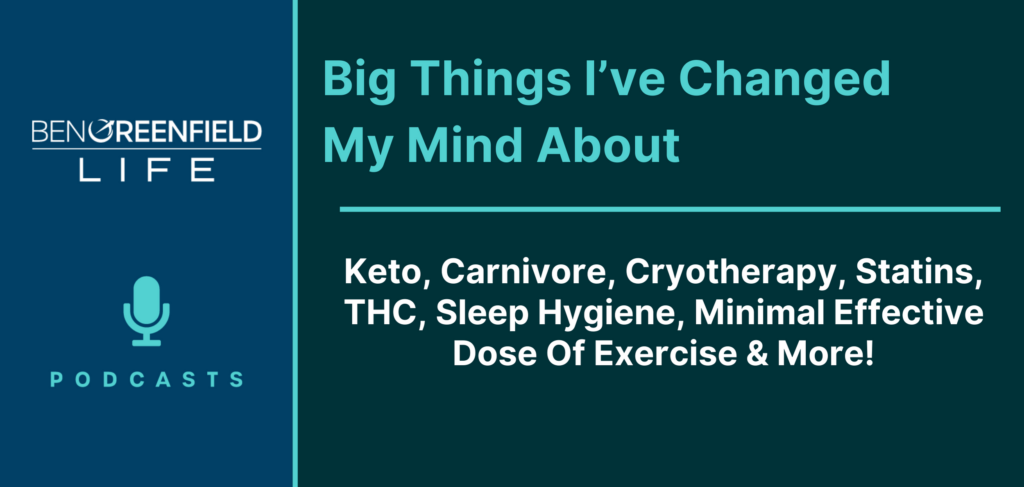
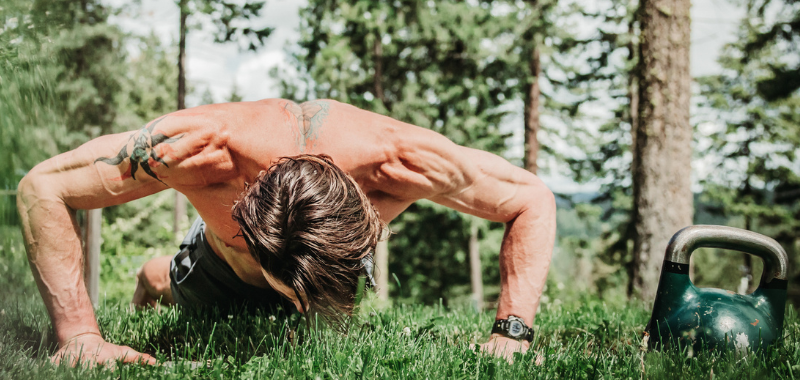


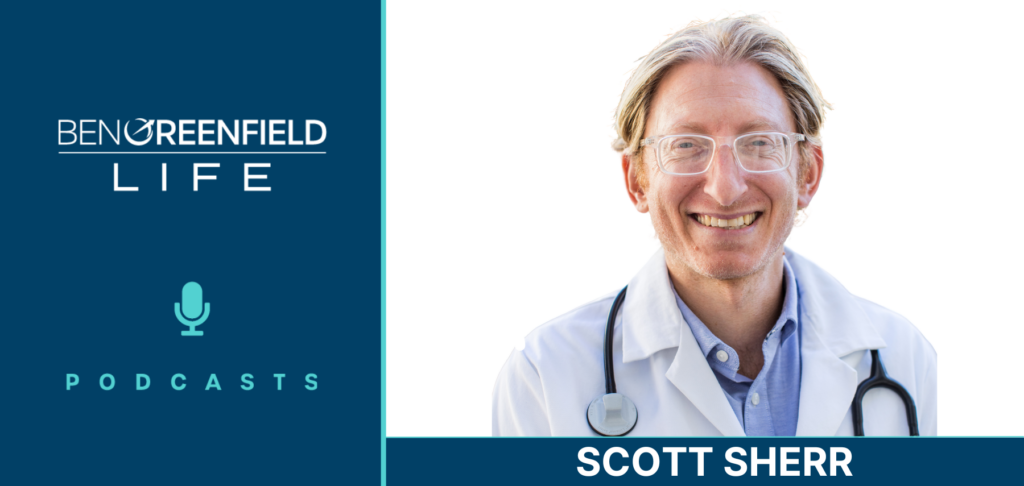

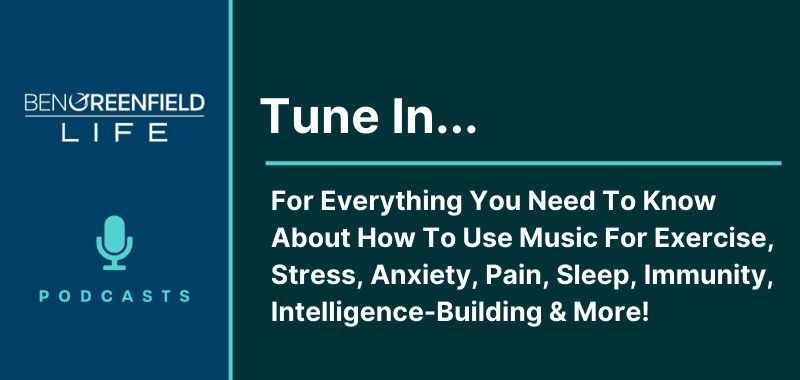
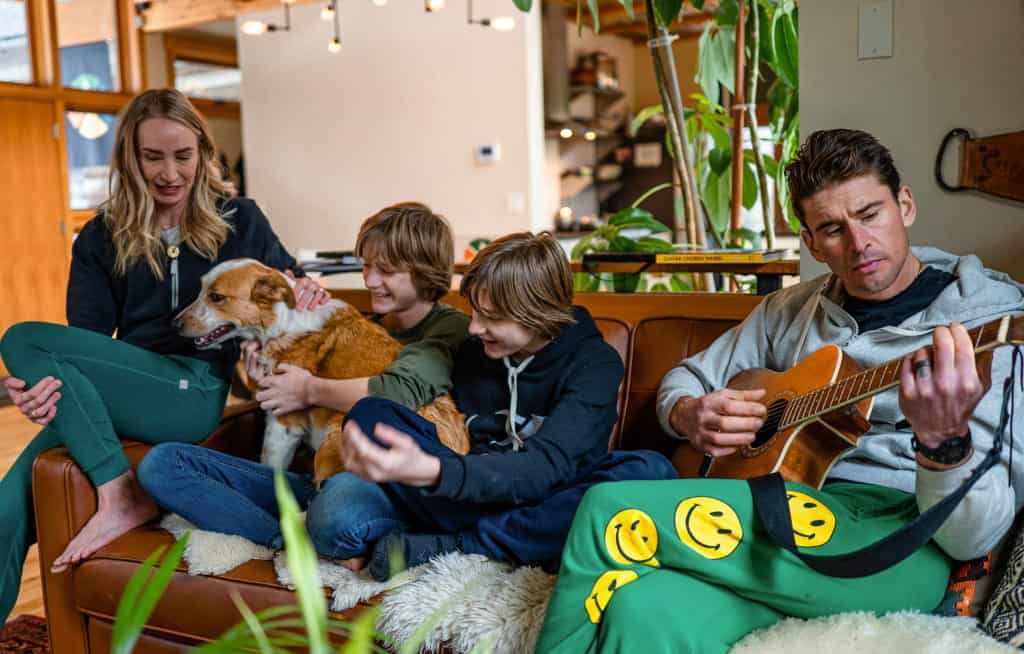


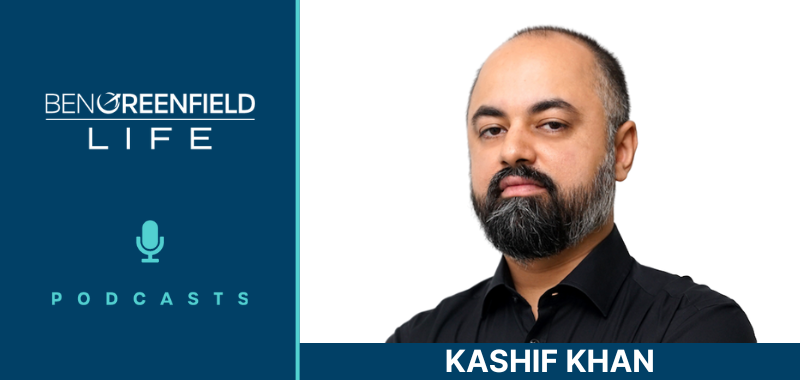

The negative effects of the lockdowns are going to be studied for years to come. It’s a sad reality considering that appears the lockdowns largely weren’t that effective. That becomes evident when looking at the case and fatality rates in places like Florida and Texas compared to New York and California. There is just not that great of a disparity. We are only beginning to see the long-term side effects of deteriorated mental health, missed education, financial ruin for small businesses, loneliness, etc.
We def would like your take on the vax…
Everyone I know who has had the the V, has fully recovered. Also, the ones who got it, were in many cases: smokers, drinkers, or had some other issue. This is a V that impacts people like that more so than the average, healthy person. The idea that we all need to lockdown, get jabbed, restrict our O2 intake (face coverings), and live in fear is not only insanely stupid, but it is making us sick. When it comes to this V, one can take precautions and keep others well being in mind but all in all, stop the madness. The more people put their foot down and say “enough is enough”, the faster this goes away…oh, and not watching the news too.
Would love to hear ben’s take on vaccines. Does he have a podcast out on them?
Creo que el aislamiento tambien tiene un efecto secundario devastador: al no estar expuestos no desarrollamos defensas ante muchas otras enfermedades (virus, bacterias, hongos,e tc) que normalmente están en el ambiente, lo cual nos hace más frágiles, tanto a esas enfermedades como al propio COVID. Creo que este efecto es especialmente preocupante en los niños, pues se sabe que es principalmente durante la infancia que se desarrolla la inmunidad para toda la vida.
El polvo, los animales, el sol, el agua, comidas…. lo que no nos mata nos hace más fuertes!!!
When you realize that covid was created for the vaccine, and not the other way around, everything else starts to make sense.
AMEN!!!! Curious as to your thoughts on why!!????
Ive heard that big pharmacy profits were down so they had to come up w a way to bring their profits into the black again. Im sure there are other reasons as well. The Great Reset. The birth rate the lowest in fifty years in 2020=population control.
Taryn, Your dilemma is mine, too, and definitely applies to so many people. Covid can be serious as it is a blood vessel disease and causes endothelial damage; often too little to notice, sometimes more severely. Best to avoid. However, all vaccines in Canada and US are not traditional vaccines. They are untested gene experiments and we have no idea about long-term effects. Considering how much the “experts” and the media lie about obvious short-term side effects (see AstraZeneca’s and J&J’s CVST issue) and try to downplay those, it will be hard to find experts who are willing to make honest educated guesses what could happen in the long run. Soon, the forced pressure from schools, employers, airlines, etc. will kick in and unless you can hunker down in Spokane forever :) , we will face ugly decisions. I feel terrible for children as they definitely do not need to fear Covid and will be forced into getting vaccinated before the new school year. I try to hold out for a little longer and hope for new insights over time but I fully understand if you go ahead this Friday. Again, Covid is not an easy disease, except for children. Good luck!
Hi Ben, I am writing from Toronto and have been following you now for roughly 6 months and find you to be quite informative and down to earth. I also have purchased your book ‘Boundless’ and go through it every day, making notes, etc. There have been many reasons to be stressed and worried throughout this pandemic, but the main thing I am concerned about now are VACCINES. I have been going back and forth for weeks, trying to determine whether to go ahead and get my first jab or not and I have an appointment booked for this Friday afternoon. It will be one of the mRNA vaccines. Though I have real concerns about long term effects which no one can answer and hate the idea of allowing myself to be injected by new vaccines, peer pressure and a real desire to get back to some sort of normal is winning. I hope and pray that my going through and getting these vaccines won’t be making me ‘less healthy’ in the long run. I know you had Covid and got over it but it really is a virus I am terrified of contracting! So weighing risk/benefits, etc, I’m going ahead with the vaccine…..though with a very heavy heart. Do you have any advice on how to navigate my way through this in the most healthy way possible?
If you’re metabolically healthy, you have nothing to fear from covid. If your health is compromised and you get sick, just take 12 mg of Ivermectin (except that Health Canada won’t approve it because it would eliminate vaccine sales; you can order it from the UK). If you test positive but don’t have symptoms, then you’re not infected and can’t spread it (the testing is flawed). In the UK, the average age of death with covid is 82, whereas the average age of death in general is 81. I hope this helps.
Ivermectin is helping most of the world yet they squashed it in congress. Ben and his wife Got Covid and he survived. Most people do, including a 100+ year old man.